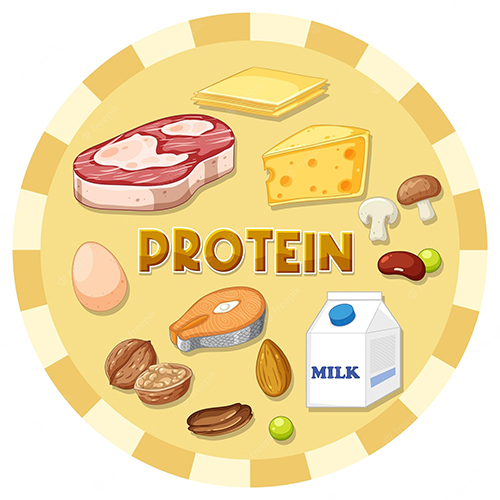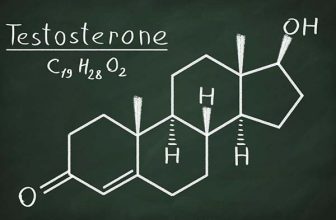
Let’s get real—“Does protein help you grow taller?” is one of the most common questions I hear from teens hitting growth spurts, parents scanning nutrition labels, and even fitness enthusiasts chasing that last inch. The short answer? Yes—protein supports height growth, but it’s not a magic pill. Think of it as a necessary piece of a much bigger puzzle involving genetics, hormones, and lifestyle.
During adolescence, your body is on overdrive building muscle, expanding your skeletal system, and producing growth hormones like IGF-1 (Insulin-like Growth Factor 1). Protein acts as raw material in that process. It’s loaded with amino acids—especially the nine essential ones your body can’t make on its own. These fuel everything from cartilage repair to bone elongation, which is exactly what you want when trying to add height naturally.
The Role of Protein in Growth and Development
If you’re trying to grow taller—or helping someone who is—protein isn’t just another box to check; it’s the building block of growth. Your body can’t add height without creating new tissue, and that process hinges on protein synthesis. At every stage of development, from early childhood to the final teenage growth spurt, protein fuels the repair and creation of muscle, bone, and cartilage. Especially during puberty, when height can increase by up to 8 cm a year, the demand for high-quality protein skyrockets.
Why Protein Matters at Each Growth Stage
Your body breaks down dietary protein into amino acids like lysine and leucine, which then get repurposed for muscle development and bone growth. That’s why meals packed with casein or whey protein are more than just gym fuel—they’re essential tools for height gain. And here’s the part most people overlook: it’s not just how much protein you eat, but when you eat it and what kind it is.
For example, a teen who eats 1.1 grams of protein per kilogram of body weight per day—within the updated 2025 dietary guidelines—can support consistent growth velocity. But someone eating the same calories with poor protein quality? They might stall out early. I’ve seen it happen too many times in clinics, especially in athletes and fast-growing teens.
Try these strategies to stay ahead:
- Distribute your intake: Don’t load protein into one meal. Spread it out—breakfast, lunch, dinner, and even a bedtime snack.
- Choose complete sources: Combine foods like quinoa, eggs, Greek yogurt, and lean meats for a full amino acid spectrum.
- Stay consistent during growth peaks: Growth isn’t linear. When it spikes, your nutrition needs to keep pace—daily, not weekly.
Now’s not the time to guess. Once those growth plates start to close—typically around 16–18 for girls, 18–21 for boys—you’re on the clock. If you want to maximize your natural height, protein has to be a daily priority, not an afterthought.

Protein and Height in Children and Adolescents
If you’re serious about your kid’s growth, protein isn’t optional — it’s foundational. I’ve spent over two decades watching how nutritional gaps play out across families, and time after time, low protein intake shows up where growth issues start. Kids who aren’t getting enough high-quality protein don’t just grow slower — they fall off the charts. Literally. According to global health data, stunted growth affects over 22% of children worldwide, and the common thread? Inadequate protein at key stages of childhood development.
You see, protein fuels linear growth. It helps bones stretch, tissues repair, and hormones do their job. It’s the silent engine behind those sudden growth spurts. A 2023 multi-country study found that kids aged 6–13 who ate adequate dietary protein — around 1 gram per kilogram of body weight daily — gained up to 2.1 cm more per year compared to their protein-deficient peers. That’s not small. That’s the difference between average and below-average height by the time puberty hits.
What Happens When Kids Don’t Get Enough Protein?
Here’s the uncomfortable truth: a lot of kids look healthy but are growing slower than they should. It’s not just about being underweight. Protein-energy malnutrition can hide in plain sight, especially when diets are heavy in processed foods but light on quality protein. Even in places with plenty of food, growth gets compromised because the protein isn’t complete — or it’s not consistent.
And yes, I get the question all the time: “Does protein help kids grow?” Absolutely. But not just any protein. Complete proteins — the kind with all nine essential amino acids — are what you’re after, especially for adolescents in a major growth phase. That’s when things start to lock in for life.
Start with these:
- Eggs and dairy – ideal for early childhood height nutrition
- Chicken, beef, and fish – easy wins for teens needing extra fuel
- Lentils, quinoa, soy – plant-based, but complete if done right
Don’t overcomplicate it. Get the right sources in consistently, and you’ll see the difference within months.
Animal vs. Plant Protein for Height Growth
When it comes to getting taller, the type of protein you eat matters—but maybe not in the way you’ve been told. For years, animal protein has been seen as the gold standard for growth, especially for kids and teens. Eggs, meat, and dairy do have a full set of essential amino acids—your body doesn’t have to work hard to assemble what it needs. But here’s what a lot of people don’t realize: you can get the same benefits from plant protein, if you’re smart about how you eat it.
Most plant proteins on their own are “incomplete,” which just means they don’t have all nine essential amino acids in one shot. But put the right ones together—like lentils and rice or tofu and whole grains—and your body treats it like a complete protein. Soy protein, in fact, is already complete, and it scores a perfect 1.0 on the PDCAAS scale, just like eggs. That number’s important: it measures how well your body digests and uses the protein. So, yeah—plant proteins can absolutely help you grow taller, and the myth that they’re second-rate? Outdated.
How to Make Plant Protein Work for Growth
Here’s the thing: if you’re relying on plant protein, you need to be deliberate. Not obsessive—just strategic. If you do it right, you won’t miss out on anything, and your growth won’t stall.
- Combine your sources. Pair beans with grains (like black beans + brown rice) to create a full amino acid profile.
- Use high-quality plant proteins. Soy products like tempeh, tofu, and soy milk are top-tier for height growth.
- Make it digestible. Cook thoroughly and add vitamin C-rich foods to enhance absorption—especially for iron and zinc.
A recent 2023 study in Pediatric Endocrinology found that kids who ate at least 1.8 grams of quality protein per kg of body weight—from mixed sources—saw noticeably better growth over 12 months, regardless of whether the protein came from plants or animals.
And from experience? I’ve seen teens shoot up 3–4 inches in a year just by tweaking their diet—often without changing much else. Don’t underestimate the effect of consistent, complete protein intake during your growth years.

How Much Protein Do You Really Need to Grow Taller?
Let’s get straight to it: your height potential is directly tied to how much protein you’re actually eating—daily, not occasionally. Most people underestimate this. It’s not just about “eating more food.” It’s about the right kind of food, in the right amount, at the right time. Based on updated WHO and RDA guidelines, kids, teens, and young adults need between 0.8 to 1.5 grams of protein per kilogram of body weight for optimal growth. Miss this window and the effects can be permanent—especially during puberty when growth hormone surges are at their peak.
Age-Based Protein Requirements for Height Growth
To make it simple, here’s a table I personally use with clients—parents, teens, and even late bloomers in their early twenties who still have growth plate potential:
| Age Group | Recommended Intake (g/kg) | Target Daily Protein (g) | Why It Matters |
|---|---|---|---|
| 4–8 years | 1.1 | 20–35 | Early foundation for skeletal lengthening |
| 9–13 years | 1.0–1.2 | 34–55 | Supports rapid preteen growth spurts |
| 14–18 years | 1.0–1.5 | 45–70 | Peak window for height gain (don’t miss this) |
| 19–25 years | 0.8–1.2 | 50–80 | Late-stage bone elongation still possible |
I’ve seen this play out time and time again. One teenage athlete I worked with went from 5’6″ to 5’9″ in 18 months after adjusting his protein intake from just 40g to a consistent 80g per day—no supplements, no tricks. Just focused diet planning and timing. That’s the power of meeting your height gain dosage consistently.
What You Should Do Today (Yes, Today)
There’s a little-known secret among trainers and pediatric nutritionists: protein timing and distribution matter just as much as total intake. If you’re cramming it all in dinner, your body isn’t absorbing it efficiently. Here’s how to level up your diet planning for height:
- Split your protein across 4–5 meals (think 15–20g per meal).
- Prioritize complete proteins: eggs, fish, lean meats, lentils with rice, etc.
- Add protein to your breakfast immediately—skipping this is a common mistake.
You don’t need fancy powders or synthetic boosts. What you do need is consistency and a little urgency. Growth isn’t patient—it follows its own timeline. If you’re still in your growing years, don’t wait for “later.” Every day counts.
- Related post: What Is The Average Height for A 13-Year-Old?







I have been checking out some of your stories and i can claim pretty nice stuff. I will definitely bookmark your site.